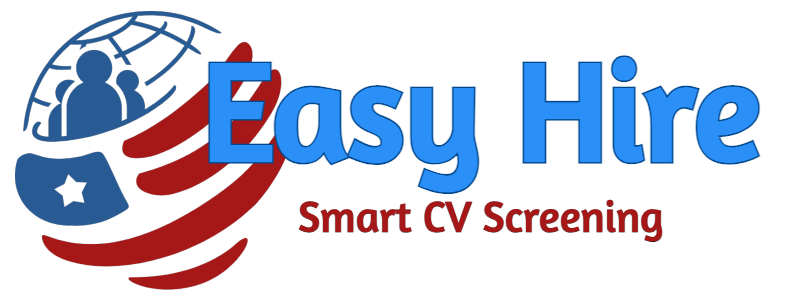The Ethics of AI in Recruitment: What You Need to Know
Ethical concerns and best practices when using AI in recruitment.
The Ethics of AI in Recruitment: What You Need to Know
Artificial Intelligence (AI) is transforming the recruitment landscape, promising faster hiring, reduced bias, and improved candidate experiences. But as with any powerful technology, it comes with ethical considerations. How can businesses leverage AI to enhance hiring while ensuring fairness, transparency, and accountability? This guide dives into the ethics of AI recruitment, offering actionable insights and best practices for HR professionals and business leaders.
By the end of this article, you’ll understand:
- The benefits and challenges of AI in hiring.
- Key ethical concerns and how to address them.
- Best practices for implementing AI-driven recruitment responsibly.
What is AI in Recruitment?
AI in recruitment refers to the use of machine learning algorithms, natural language processing, and other AI technologies to automate and optimize hiring processes. From resume screening to candidate engagement, AI tools can handle repetitive tasks, analyze large datasets, and even predict candidate success.
Example: AI-powered platforms like Easyhireapp use algorithms to match job descriptions with candidate profiles, saving recruiters hours of manual work.
Why is Ethical AI Recruitment Important?
The global AI recruitment market is projected to reach $590 billion by 2027, highlighting its growing adoption. However, without ethical oversight, AI can perpetuate biases, infringe on privacy, and create unfair hiring practices.
Key Ethical Concerns:
- Bias in Algorithms: AI systems can unintentionally replicate human biases present in training data.
- Lack of Transparency: Many AI tools operate as “black boxes,” making it hard to understand how decisions are made.
- Privacy Issues: AI systems often collect and analyze sensitive candidate data without clear consent.
- Job Displacement: Concerns that AI may replace human recruiters, reducing the personal touch in hiring.
Key Benefits of Ethical AI Recruitment
When implemented responsibly, AI can bring significant advantages to the hiring process:
- Reduced Bias: AI can help eliminate unconscious bias by focusing on skills and qualifications rather than demographics.
- Improved Efficiency: Automated workflows free up recruiters to focus on strategic tasks.
- Enhanced Candidate Experience: AI-driven chatbots provide instant responses, keeping candidates engaged.
- Data-Driven Decisions: AI analyzes vast amounts of data to identify top talent and predict hiring outcomes.
Real-World Example: A Fortune 500 company used AI to screen resumes, reducing time-to-hire by 30% while increasing diversity in their candidate pool.
Challenges & Misconceptions About AI Recruitment
Despite its potential, AI in hiring is often misunderstood. Let’s debunk some common myths:
Myth 1: AI will replace human recruiters.
Reality: AI is a tool to assist recruiters, not replace them. It handles repetitive tasks, allowing humans to focus on relationship-building and decision-making.
Myth 2: AI is completely unbiased.
Reality: AI systems can inherit biases from training data. Regular audits and diverse datasets are essential to minimize bias.
How to Implement Ethical AI Recruitment in Your Business
Here’s a step-by-step guide to ensure your AI-driven hiring practices are ethical and effective:
- Choose Transparent Tools: Opt for AI platforms that explain how decisions are made.
- Audit for Bias: Regularly test your AI systems to identify and address biases.
- Prioritize Privacy: Ensure candidate data is collected and stored securely, with clear consent.
- Combine AI with Human Judgment: Use AI as a complement to human decision-making, not a replacement.
- Train Your Team: Educate recruiters on how to use AI tools effectively and ethically.
Future Trends in AI Recruitment Ethics
As AI technology evolves, so do the ethical considerations. Here’s what to watch for:
- Explainable AI: New developments aim to make AI decision-making more transparent.
- Regulation: Governments and organizations are introducing guidelines to ensure ethical AI use.
- Human-AI Collaboration: The focus will shift toward enhancing human-AI partnerships for better hiring outcomes.
FAQs About AI Recruitment Ethics
Q1: Can AI eliminate bias in hiring?
A1: AI can reduce bias, but it’s not foolproof. Regular audits and diverse datasets are essential to minimize bias.
Q2: Is AI recruitment compliant with data privacy laws?
A2: Yes, but only if platforms comply with regulations like GDPR and CCPA. Always ensure candidate data is handled securely.
Q3: Will AI replace human recruiters?
A3: No, AI enhances recruitment by automating tasks, allowing recruiters to focus on strategy and relationship-building.
Conclusion: Balancing Innovation with Ethics
AI in recruitment offers exciting possibilities, but its ethical use is non-negotiable. By understanding the challenges and implementing best practices, businesses can harness AI to create fair, efficient, and effective hiring processes.
Ready to transform your recruitment strategy? Explore how Easyhireapp’s AI-powered tools can help you hire smarter and faster. Visit AI recruitment ethics best practices to learn more.
Internal Links:
- How AI Improves Diversity Hiring
- The Ultimate Guide to AI in Recruitment
- AI Recruitment Tools for Small Businesses
By addressing the ethics of AI recruitment, you’re not just adopting cutting-edge technology—you’re building trust and fairness into your hiring process.
